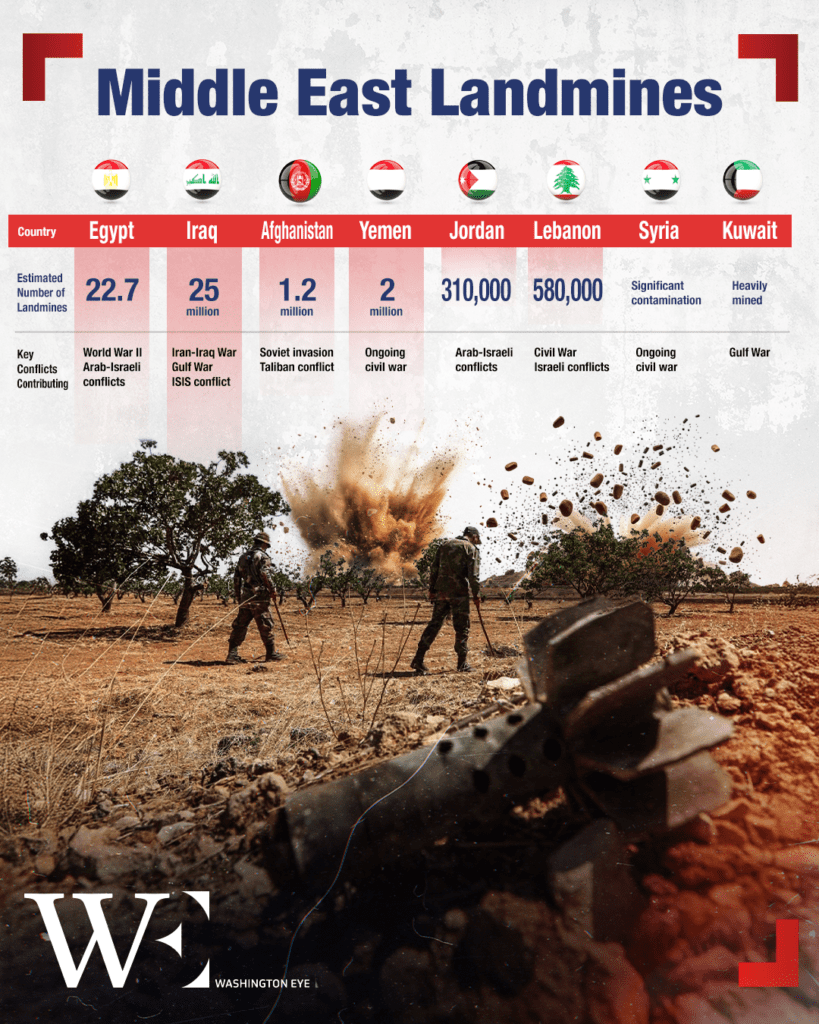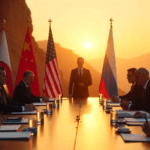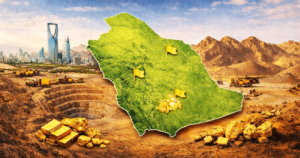The recent directive from the U.S. State Department to suspend global mine-clearing programs has sent shockwaves through the humanitarian and security communities.
The decision, reportedly communicated via an early morning email from Karen R. Chandler, head of the Office of Weapons Removal and Abatement, follows a broader executive order to reassess U.S. foreign aid priorities under the Trump administration.
Secretary of State Marco Rubio defended the move, stating that all foreign aid must now align with “American security and prosperity.” However, this policy shift threatens to deprioritize critical humanitarian initiatives, particularly in regions plagued by landmines and unexploded ordnance (UXO).
The immediate impact of this suspension is being felt in conflict-affected areas such as Ukraine, Iraq, and Southeast Asia, where landmines continue to claim lives and hinder development. These explosive remnants of war pose severe risks to civilian populations, hamper agricultural productivity, and obstruct the safe return of displaced communities. The abrupt cessation of funding leaves organizations in limbo, raising concerns over operational continuity and the long-term implications of this policy shift.
Dr. Iain Overton, Executive Director of Action on Armed Violence, has voiced strong opposition to the decision, warning that halting mine-clearing efforts could have devastating consequences.
“If this is longer than a small pause, it might be a short-sighted decision that puts countless lives at risk,” he stated. Demining organizations, including the HALO Trust and Mines Advisory Group, have emphasized that their work is not only about removing explosive hazards but also about fostering economic recovery and rebuilding shattered communities.
The scale of the landmine crisis is staggering. Iraq, for instance, remains littered with an estimated 25 million landmines, many of which date back to conflicts spanning several decades. Similarly, Syria recorded nearly a thousand landmine casualties in 2023 alone, a grim reminder of the persistent threat these weapons pose to civilians. The Middle East as a whole is one of the most heavily mined regions in the world, with remnants from past wars continuing to maim and kill long after the fighting has ended.
Globally, landmines kill or injure more than 5,000 people annually, with civilians—particularly children—comprising the vast majority of victims. Beyond the immediate human cost, the economic consequences are profound. Agricultural land becomes unusable, infrastructure projects are delayed, and entire communities are rendered uninhabitable due to the lurking danger of unexploded ordnance.
In countries like Iraq and Afghanistan, landmine contamination has contributed to food insecurity and economic stagnation, preventing vital development initiatives from taking root.
For decades, the U.S. has been a leader in demining efforts, providing critical funding and technical support to countries grappling with the deadly legacy of war. American support has facilitated the clearance of millions of square meters of contaminated land, allowing farmers to return to their fields and displaced families to reclaim their homes.
The sudden withdrawal of this support signals a concerning shift in U.S. humanitarian priorities and raises questions about the future of global mine action efforts.
While the full implications of the suspension remain unclear, demining organizations are already facing significant operational challenges. Many rely heavily on U.S. funding to sustain their programs, and without it, they may be forced to scale back or even halt their work altogether.
This uncertainty jeopardizes not only the safety of vulnerable populations but also the broader goals of stability and development in mine-affected regions.
The decision to suspend mine-clearing efforts could have far-reaching diplomatic consequences as well. Allies and partner nations that have long collaborated with the U.S. in humanitarian demining may see this move as a sign of waning commitment to global security and development.
In regions like the Middle East and Southeast Asia, where landmines are a critical barrier to post-conflict recovery, the absence of U.S. support could undermine broader geopolitical interests and erode trust in American leadership.
The U.S. decision to suspend global mine-clearing programs risks undoing decades of progress in humanitarian efforts and international security. Landmines are a persistent threat that continue to claim lives, restrict economic growth, and prevent the safe return of displaced populations.
Without sustained support, affected regions will struggle to recover, leaving communities trapped in a cycle of fear and uncertainty.
By halting these initiatives, the U.S. not only risks alienating key allies and humanitarian partners but also undermines its leadership role in global security and stability. The repercussions of inaction extend beyond the immediate threat of unexploded ordnance; they jeopardise food security, infrastructure development, and long-term peacebuilding efforts in some of the world’s most vulnerable regions.
Addressing the global landmine crisis is not merely an act of charity but a strategic imperative that aligns with broader goals of economic development, regional stability, and international cooperation.
The decision to withdraw support must be reconsidered to prevent further harm and to ensure that progress made in demining efforts is not lost.
The human cost of inaction is far too high.
















